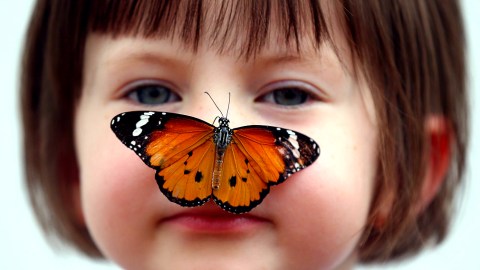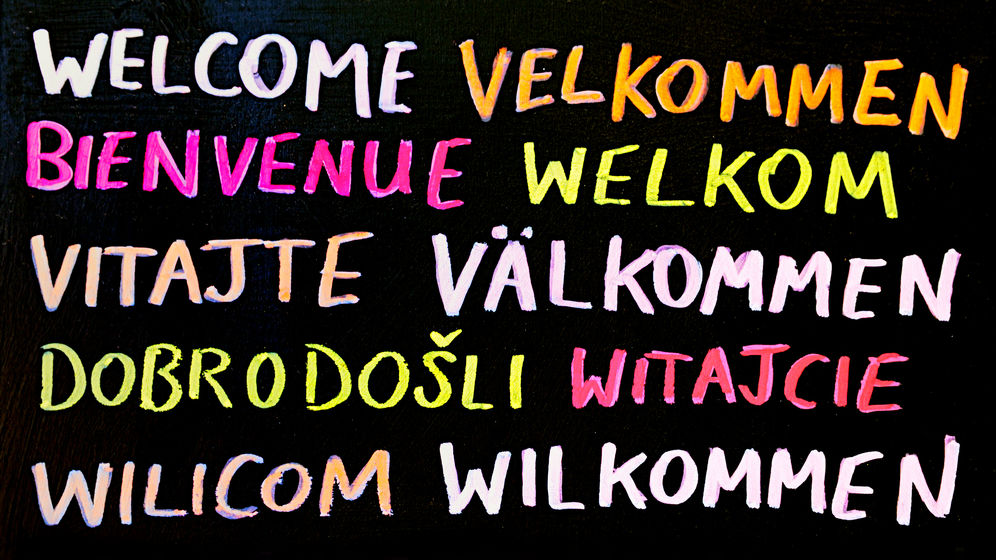Is Empathy Hardwired in the Brain or Do We Learn It through Experience?

The basics of social behavior come from the brain’s emotional system, which is an important contributor to empathy and morality from infancy through adulthood. Babies often cry when they hear another baby crying, because knowing that another person is unhappy makes them feel bad. Even rats will work to help another rat who seems to be in distress. So some precursors of social skills are probably built into the brain, but experience also influences how well children understand and respond to the needs of other people.
Initiating joint attention to an object is one of the earliest indications of social skills. Babies who frequently point out interesting things to other people at nine or ten months are more likely to be rated as socially competent at two and a half years. By their first birthday, babies already like characters who help others better than those who hinder. True empathy, the ability to appreciate and talk about other people’s feelings, develops by age five.
During that same preschool period, children show great gains in self-control. Individual children who have better self-control also show more empathy and a more developed conscience. Similarly, children who are better at inhibiting an automatic behavioral response (for example, by saying “day” when shown a picture of the moon, instead of “night”) tend to have a more sophisticated theory of mind—the ability to imagine what other people are thinking and feeling—once age, intelligence, and working memory are taken into account.
The earliest precursor of conscience is the child’s desire to please the parents, which tends to be stable across situations. Before age two, children begin to show individual differences in their likelihood of feeling guilty when they’ve done something wrong, which is linked to their ability to follow rules when no one is watching. Receptiveness to parental guidance predicts individual differences in conscience at later ages, including older children’s ability to reason about moral situations.
The child’s individual characteristics also influence the development of conscience. Children with strong self-control show more mature moral abilities than impulsive children of the same age. Temperamentally fearful children are prone to guilt, which leads to more compliant behavior but also to anxiety disorders. For them, warm and sensitive parenting is the most effective path to conscience. For less fearful children, formation of a secure attachment to a parent is the best predictor of later conscience.
One way that parents and teachers can improve children’s self-control and social skills is through emotion coaching. This process involves helping children to label their emotions and learn to think through the possible consequences of various reactions in advance, rather than following their first impulse. For example, an angry five-year-old might benefit from a parent’s suggestion to try running around the house a few times rather than punching the friend who stole his toy. In one analysis of multiple studies, involving over 270,000 students from kindergarten to high school, schools programs aimed at improving social and emotional skills increased academic performance by 11 percentile points—as much as interventions targeted specifically to academic subjects.
The more often a parent talks to a child about motivations and mental states, the sooner the child begins to demonstrate an explicit ability to speak in terms of the beliefs of others. An even stronger influence is growing up with older siblings. Having an older (but not younger) sibling leads to earlier development of theory-of-mind capacity in three- to five-year-old children. The size of the difference is equivalent to an average of four to six months of advance per older sibling, for up to three siblings. By age six, nearly all children have acquired the same level of understanding, but there may be lasting social advantages to developing this capability earlier.
Psychologist Glenn Schellenberg unexpectedly found another way to improve social skills in a study aimed at finding out whether musical training increases intelligence. He compared six-year-old children who received 36 weeks of music lessons or drama lessons with those who were placed on a waiting list. Though he had intended to use acting lessons as an active control for musical training, children who took the drama class also showed a large benefit: marked improvement in adaptability and other social skills. The effect was moderately large, with the average child receiving drama lessons scoring higher than 72 percent of children in the other groups. Researchers aren’t certain why taking drama lessons improves social skills, but one possibility is that deliberate practice at inhabiting the character of another person strengthens the function of brain areas involved in daily social interactions.
The evidence is clear that self-control and social skills are related areas of child development where experience matters a great deal. By using the suggestions in this series to help improve these skills, parents can increase the chances that their children will become successful and happy adults—and the rest of us will appreciate their empathy and conscience.
Image courtesy of Tracy Whiteside/Shutterstock.





